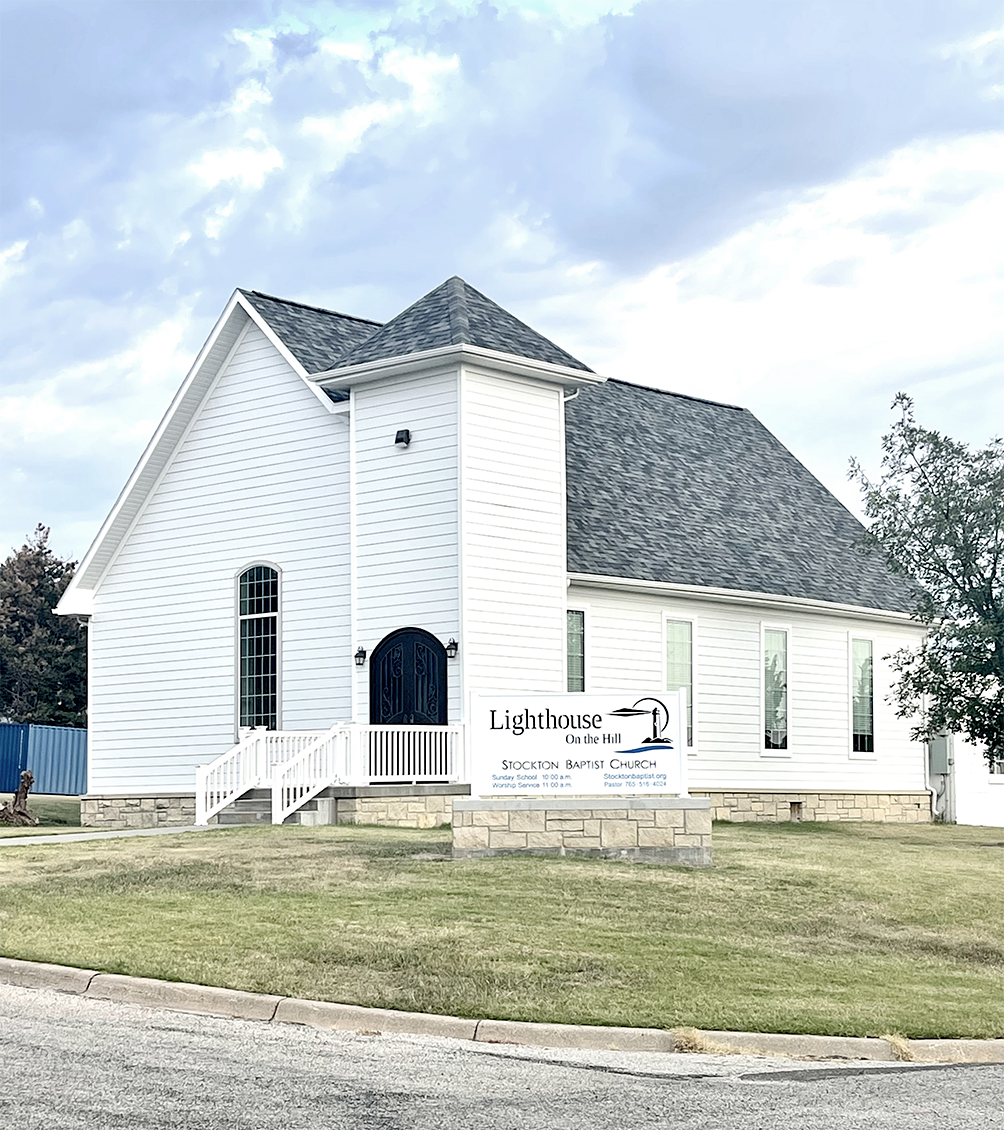Stockton Baptist Church
HOPELESSNESS. Many people have been there... or at least thought that they were. That would certainly be the case of Israel back in the time of David. One of the bestknown historical events occurred about 15 miles southwest of Jerusalem. Envision an aerial view of the Valley of Elah with Israel's army entrenched along the northern hilltop ridge and the Philistine army entrenched along the southern hilltop ridge. It was a hopeless scene. Whoever would have attempted crossing the valley and scaling the opposite hill would be significantly disadvantaged and easily defeated. Instead, the Philistines sent out their best, Goliath, to challenge and belittle Israel. And he did so for 40 days, saying, 'I defy the armies of Israel this day; give me a man, that we may fight together' (1 Sam. 17:10). The whole of Israel's army, including King Saul, felt nothing but hopelessness.
After all, Goliath was a brute standing over nine feet tall. Jewish men of that day would have been maybe five feet five inches tall. No wonder the Israelite army was 'dismayed and greatly afraid' of Goliath (17:11). So, why was David's reaction completely different? Why didn't David, still a youth, feel hopeless when he saw someone twice his size? Why didn't he run away, shaking with fear? What did David have that King Saul and the Israelite army didn't have? He had faith. David knew that Jehovah God was infinitely bigger than any pagan giant. As a result, he told Goliath, 'The battle is the LORD's, and He will give you into our hands' (17:47). There was not even a hint of hopelessness in David because his full 'hope' and confidence was in God. For us, 3,000 years later, life can be difficult and lead to varying levels of hopelessness. At those times, remember Proverbs 3:5-6 and 'Trust in the LORD with all your heart, And lean not on your understanding; In all your ways acknowledge Him, And He shall direct your paths.'




